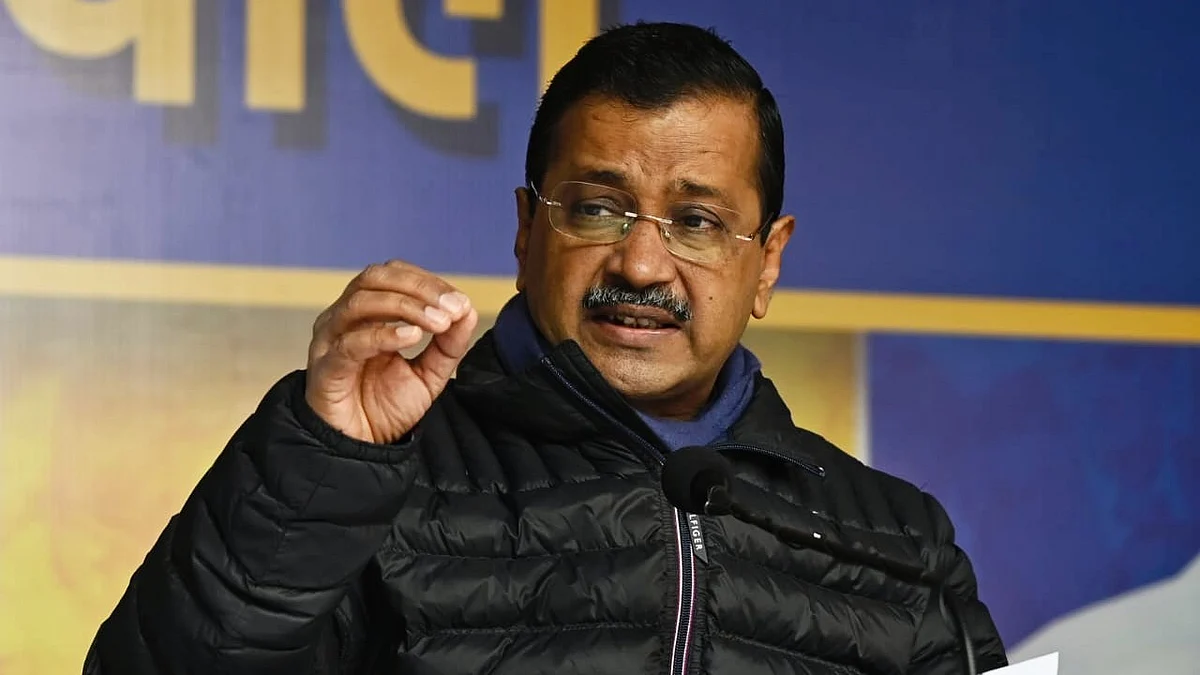Nation
Kejriwal’s PMLA prosecution gets go-ahead from home ministry
This decision follows a Supreme Court ruling on 6 November, which mandated that the ED must obtain prior approval for prosecution in money-laundering cases

The Union home ministry has authorised the Enforcement Directorate (ED) to prosecute former Delhi chief minister Arvind Kejriwal and his former deputy Manish Sisodia under the Prevention of Money Laundering Act (PMLA) in connection with the alleged irregularities in the now-abandoned Delhi Excise Policy 2021–22, sources confirmed on 15 January, Wednesday.
This decision follows a Supreme Court ruling on 6 November 2024, which mandated that the ED must obtain prior approval for prosecution in money laundering cases, similar to the Central Bureau of Investigation (CBI), under Section 197(1) of the Criminal Procedure Code (now Section 218 of the Bharatiya Nagarik Suraksha Sanhita). The filing of charges against Kejriwal in the excise policy case had been delayed in a Delhi court due to the lack of such sanction.
Earlier reports had suggested that the ED intended to seek approval for prosecuting all public servants before filing charge sheets in its Prevention of Money Laundering Act (PMLA) cases.
In December 2024, Delhi's lieutenant governor V.K. Saxena granted approval for the ED to proceed with prosecuting Kejriwal. This followed his earlier recommendation for sanction to be granted to the ED to pursue the case. In August 2024, the CBI also obtained similar permission to prosecute Kejriwal in a related corruption case concerning the excise policy.
Kejriwal, who was granted bail by the Supreme Court last year in separate cases filed by the ED and CBI related to the excise policy, is currently seeking to have a trial court's order, which allowed the ED's chargesheet to proceed without prior sanction for his prosecution, quashed by the Delhi High Court.
A source indicated that the ED recently applied for permission to prosecute both Kejriwal and Sisodia. “Officials were awaiting approval, which arrived just a few days ago,” the source added.
Published: undefined
Kejriwal, who was arrested by the ED on 21 March 2024 after he failed to appear before it even after nine summons, and later released on bail, was named in a charge sheet filed on 17 May. The ED alleges that Rs 45 crore of a Rs 100 crore bribe intended for favoured liquor traders was used in the Aam Aadmi Party's (AAP) Goa election campaign. The ED claims that, as national convenor and a member of AAP's national executive, Kejriwal had ultimate responsibility for managing these funds and was a central figure in the party's activities.
The ED further asserts that Kejriwal, as a founding member of the excise policy, played an active role in its decision-making and was involved in demanding kickbacks, with witnesses providing testimony to support this claim. The agency also alleges that proceeds of crime amounting to ₹1,100 crore have been identified in connection with the case.
The ED has labelled Kejriwal as the ‘kingpin’ of the alleged irregularities in the excise policy. Additionally, it claims that Kejriwal, Sisodia and former AAP media head Vijay Nair sought further funds for election financing, beyond the Rs 100 crore kickbacks. The agency also alleges that Vinod Chauhan, a close associate of Kejriwal, facilitated the transfer of Rs 25.5 crore in bribe money from Delhi to Goa.
Kejriwal has denied all charges.
As the first sitting chief minister in India to be arrested, Kejriwal was detained by the ED on 21 March and produced before a court the following day.
Published: undefined
He was held in custody initially until 28 March, with his detention extended to 1 April. He was granted bail on 20 June by special judge Niyay Bindu, who ruled that the ED had failed to provide direct evidence linking him to the proceeds of crime.
However, the Delhi High Court stayed this order on June 21 after the ED appealed.
On 26 June, Kejriwal was arrested again by the CBI in relation to the corruption case. He was sent to judicial custody on 29 June following questioning. Eventually, Kejriwal was granted relief by the Supreme Court on 12 July in the ED case and on 13 September in the CBI case, leading to his release from jail.
Published: undefined
Follow us on: Facebook, Twitter, Google News, Instagram
Join our official telegram channel (@nationalherald) and stay updated with the latest headlines
Published: undefined